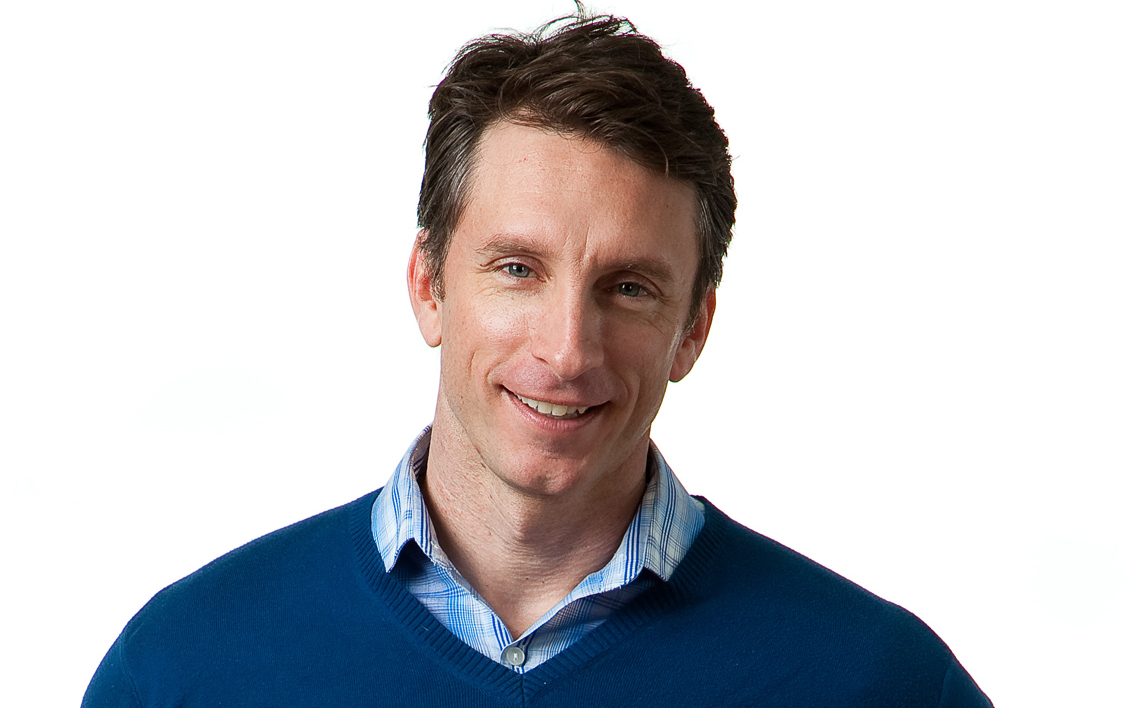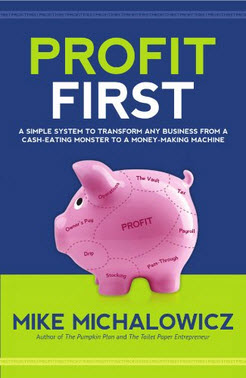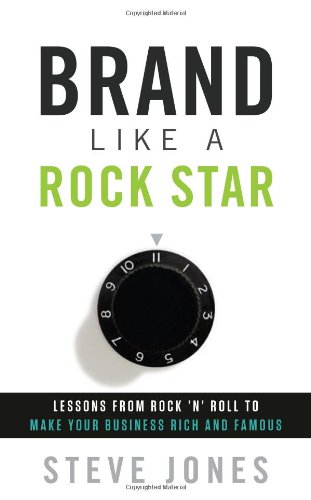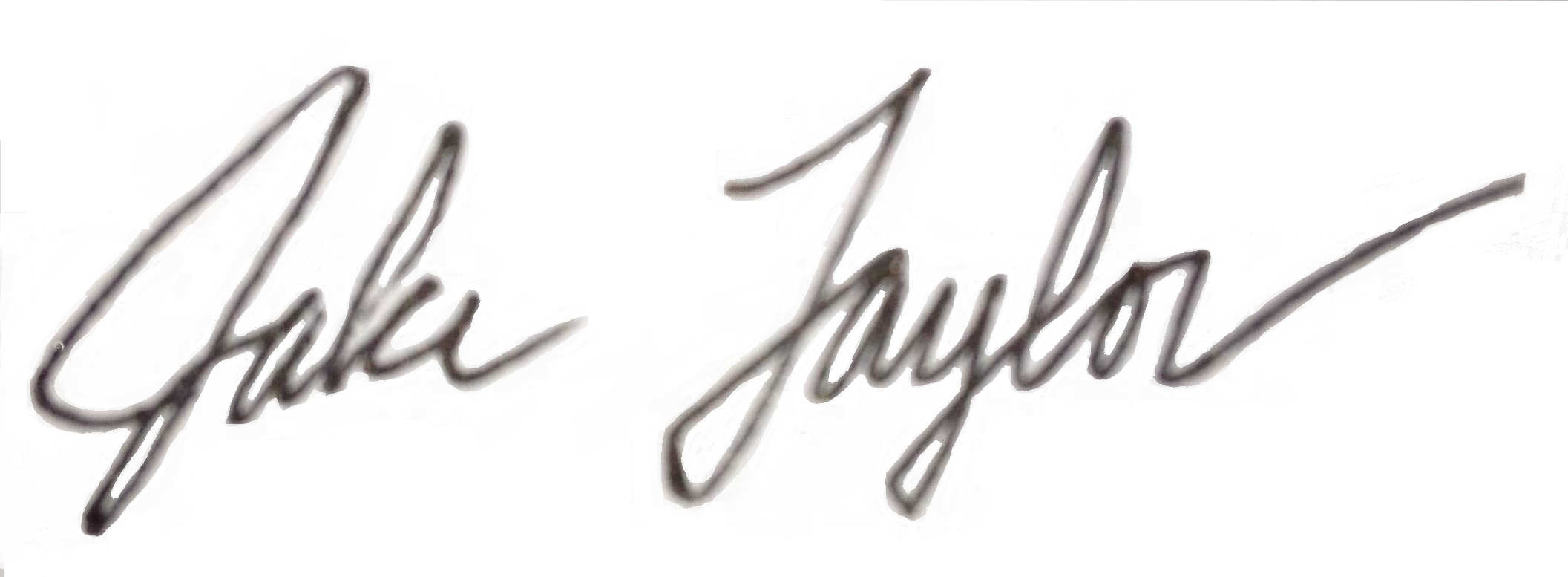Author Background:
By his 35th birthday, Mike Michalowicz (pronounced mi-’kal-o-wits) had founded and sold two multi-million dollar companies. Confident that he had the formula to success, he became an angel investor… and proceeded to lose his entire fortune. Then he started all over again, driven to find better ways to grow healthy, strong companies.
Mike is now running his third million dollar venture, is a former small business columnist for The Wall Street Journal; is the former MSNBC business make-over expert; is a popular keynote speaker on innovative entrepreneurial topics; and is the author of Profit First, The Pumpkin Plan and The Toilet Paper Entrepreneur, which BusinessWeek deemed “the entrepreneur’s cult classic.”
Mike’s Book Recommendation:
Audio Podcast:
Other ways to listen:
* On iTunes
* Right Click + Save As to download as an MP3
* Stream here directly
With gratitude,
Transcript:
Jake: Hi, welcome to Five Good Questions. I’m your host, Jake Taylor. Our guest today is Mike Michalowicz. Before his 35th birthday, Mike had founded and sold two multi-million dollar businesses. Thinking that he had the Midas touch, he became an angel investor and proceeded to lose it all.
Starting over and driven to find a way to build more sustainable businesses, Mike created the Profit First System. We’ll be interviewing Mike about his book, Profit First. Mike was a small business columnist for the Wall Street Journal and also the MSNBC Business Makeover expert. Mike is now running his third million dollar venture and he’s also a keynote speaker on Entrepreneurial Innovation. Let’s ask Mike five good questions.
Hey, welcome everybody. My guest today is Mike Michalowicz and we got his book, Profit First, here. And that’s what we’re going to be talking to him about.
Mike, you ready for your five good questions?
Mike: Yeah, totally. Thanks for doing the cameo shot of the book around you. I love it.
Jake: No problem. Where are we talking to you today, Mike?
Mike: I’m right outside New York City, in New Jersey, about 20 miles west of the Lincoln Tunnel.
Jake: Cool. Is that Michalowicz headquarters there?
Mike: That’s Michalowicz headquarters right here. There are three of us at HQ right now.
Jake: Nice. Alright. So let’s see, question #1.
Mike: Yeah.
Jake: So the inspiration for Profit First, your new book, seems to have come from kind of a personal rocky patch. The book is actually pretty biographical which I thought was really nice like the honesty that you shared there.
Mike: Oh, thank you.
Jake: So like what was happening in your life at the time that kind of inspired you to write this book?
Mike: Yeah, so I experienced the upside that a lot of us hear about. I was able to sell two companies I had started and became wealthy. And what happened during that period is I thought I knew all the answers to business success and entrepreneurial success. And I started spending and acting, I guess, like an idiot. It’s the only word I can come up with. I just blew money on starting other businesses that I had no business being in. I spend money on cars and joining the club and club memberships. So these dumb things. And my ego got the best of me.
And within about two years of selling my second company, I’ve lost pretty much every single penny. And I hadn’t been telling my family about it. I’m embarrassed to admit that. But I was ashamed of how bad I was at money management. But I finally came to the brink where I didn’t have enough money to pay taxes. And I came home to my family when I figured this out which happened to be Valentine’s Day 2008.
I came home to my wife and children and told them that everything we had is gone, I’ve lost it all. I was ashamed and embarrassed. And my daughter while I was telling this, so they were all, my children and my wife, they were just stone walled. They were just looking up. They couldn’t believe what they were hearing because, basically, I’m lying by admission, you know, and by telling.
My daughter ran out of the room, she’s 9 years old. I got it. I wanted to run away like that’s what the solution. Just run away. She came back, Jake, like a minute later, not even, thirty seconds later, with her piggy bank and she put it down in front of me. And she said, “Daddy, I’m going to help us get through this.” You know, it still gives me chills.
Jake: Yeah.
Mike: That moment, it was the most humbling moment of my life. That I now had a 9-year-old feeling compelled to save our family because I was such an idiot. And I endeavored from that day forward that I was going to figure out how to be financially healthy in my business. And that I was going to find a formula or a system of making profit. Not an event like sell a company big moments, big sales; I assume a profit, a habit, something that was just baked into my business.
And I didn’t find the solution right away but I endeavored to find it. I think I did found it in Profit First, that book you showed, and then started using it. And it turned everything for me, everything for me. And for the clients I’ve worked with, done the same. People who are reading the books are doing the same.
Jake: Yeah, that’s fantastic. I mean, that is definitely a chilling story.
Mike: It was scary. And you know, I suffered from a mild form depression.
Jake: Sure.
Mike: Like it was terrifying. It wasn’t like here then it’s like “Oh my god”, the next day, you figured it out. No. The next day I was drinking more than I should be drinking. I was watching infomercials. I couldn’t sleep. I had blotches all over my face. It was a tough time.
Jake: Yeah.
Mike: Tough time.
Jake: And 2008 was tough for a lot of people.
Mike: For a lot of people, yeah.
Jake: Yeah.
Mike: Yeah.
Jake: Let’s jump to question #2 now.
Mike: Yeah.
Jake: So there’s this big tendency for entrepreneurs to use revenue as the number that they talk about when they’re at barbecues and they’re bragging about their businesses. Do you think that that’s the right metric? And if not, then what metric should they be using?
Mike: Yeah. So I would say, mostly, it’s the totally wrong metric. But it does have value. But I was there too. You know, I have a $7 million company; that was my second company. I remember bragging at the sides like “Look how great I am.” Like, you know, “How tough I am”. The reality was it was barely breakeven. I was barely getting by so I had more stress in that business than I did early on because I had payroll; all these things do.
So the top line is kind of the “how big is it”, you know, question. Like how big are you, you know.
Jake: Sure.
Mike: It doesn’t matter. What matters is the bottom line – how much are you taking home. I am far more impressed by a business that say it does 500, 000 revenue but the owner’s taking home 200,000 because we’re that efficient than a 10 million dollar company where the owner taking home 150,000. Like to have all that stress and you can only squeeze out a little bit of money, like that is dumb. It’s embarrassing.
So my argument is we as entrepreneurs should no longer brag about how big is your business because it freaking doesn’t matter. We should be bragging about how healthy our business is, how strong is that bottom line.
Now the only caveat is you’ll have no bottom line if you don’t have a top line. This has to flow through. So you need the top line, that is important .But really all that matters in the day is if you have some of that top line, how much are you extracting at the end of it. What’s the percentage you’re talking out of it and taking for yourself and for your profit, your business. That’s what matters.
Jake: Yeah, I agree. Following up on that with the question #3, which dovetails nicely: are you talking how much money you kind of have to spend in expenses to support, keep your revenue coming in? And yeah, I’m a big Warren Buffett fan.
Mike: Yeah.
Jake: He’s actually been accused of not reinvesting enough in some of his businesses like Dairy Queen, for instance, and kind of basically like milking them.
Mike: Yeah.
Jake: And so, I mean, they cut expenses a lot in Berkshire’s businesses .
Mike: Yeah.
Jake: But is there a rule of thumb that you give CEOs about a kind of CAPEX, you know.
Mike: Yeah.
Jake: It’s like you’re not neglecting your business so much. You’re still trying to be profitable. Like it seems like kind of a tough line for people to draw there.
Mike: It’s funny. I found and I agree with Buffett’s approach. It’s that actually as you squeeze down the expenses, you take more for profit. It forces you to have less money for CAPEX and OPEX, right? So you have less money for operations and capital expenditures. What happens is if you have less money for expenses that means you’ve become more targeted in what you do. You have to do fewer things. It reduces your offering set.
So with a reduced offering set, the only way you can now compete is by being superior at that offering set. You can’t just make things, you better be really good. You become a specialist. A specialist then targets customers with that specific unique need. And those customers pay premium.
The analogy is kind of like a heart surgeon versus a general practitioner. A general practitioner doctor does tons of things but she gets clients that need general things. You know, what’s wrong my skin here, what’s this and that. The second, if the problem becomes life threatening, it’s cancer or you have heart disease, you go to a cancer specialist or a heart specialist. And you pay a massive premium there because it’s a life or death situation.
The business that reduces its offering set becomes a specialist, the heart surgeon, they will attract customers with the strongest need, life or death. So they’ll attract customers that pay a premium. So I actually argue by pushing more toward profits. It forces you to become more efficient and actually more of a specialist. It works to your advantage. Hands down.
If the companies that keep on ploughing back money, they become these generalists and try to do more things and actually water down their ability. So I’m a big supporter of it. There is a certain point if you take out all of your profit and you have nothing to run your business on, that you’re in trouble.
So the point is once you hone down your offering set to that something that can’t be reduced anymore. That’s where the plough back should be going. And we should be going into that, your specialty.
Jake: And if you want, like a great book on that concept of really narrowing down what you’re focusing on. Your second book, Pumpkin Plan was…
Mike: Oh, thank you.
Jake: Was spot on for that.
Mike: Yeah, that means a lot. Thank you. So in that book, just real quick, what I do is tell the pumpkin farmers. That vast majority are pumpkin farmers, ordinary farmers; they make all their money, Halloween is the big day. But there’s a small fraction that grow colossal pumpkins, they become very focused on a very small fact growth process and it resolve in pumpkins that grow ten to a hundred times bigger than an ordinary pumpkin.
In business, the vast majority of entrepreneurs are generalists trying to get lots of pumpkins going, if you will. The most successful folks, the Warren Buffetts if you will of the world, focus very narrowly on one type of offering and mastering it. And then it narrows offering and they experience explosive growth.
Dairy Queen’s a huge success and I think by extracting our profit that he’s forcing that business to figure a way to become very efficient at very few things. Make superior ice cream in a very unique way to maintain that profit. I think it’s actually a good habit.
Jake: Yeah, that’s great. Great insight. Let’s see, let’s go to question #4. There’s lots of talk in your book about cutting costs and…
Mike: Yeah.
Jakes: Companies that have cut cost in very creative ways. Would you mind sharing a couple examples or at least one good one?
Mike: Yeah. In the book I was talking about UPS and I’ll share about that story. But there’s another one I haven’t shared and I think it’s probably the most innovative that I’ve ever heard. But you guess…
Jake: Yeah.
Mike: What?
Jake: I said can’t wait to hear it.
Mike: Oh, yeah. So let me tell you what UPS did. UPS noticed that when a driver exits a car or the truck and gets back in, he’s going to find his keys in his pocket, insert it and turn the vehicle on. And that process takes 10 or 20 seconds. Per delivery, who cares? They recognized these drivers do, say, 30 or 40 deliveries a day multiply that by 10 seconds; you’re talking 300 to 400 seconds, maybe 5 or 6 minutes. Still, who cares? But multiply that by all their drivers, the 500,000 drivers, now this become a lot of time.
Jake: Yeah.
Mike: And so if you can even speed that up by half the time or faster, you’re saving some serious money. What they found was some of the drivers were hanging the key, when they were getting on the truck, off of their pinky and then carrying the boxes in and leaving.
Well now when it came to starting cars, it’s a simple flip of the wrist and they have it within seconds. That became now procedures. You’ll notice that most UPS drivers have the key hanging off of their finger so they can do it or off of their belt but not in the pockets anymore and efficiency was gained. A huge profitability was gained. But you know nothing else have changed, they don’t have to sell their customers for anything. They didn’t have to increase prices. Nothing changed but they’re more efficient.
But here’s my favorite example because this was a small business, small pizza shop trying to advertise in a very competitive market. Here I am in New Jersey, in my town alone, I can think of six pizza shops. You know, like it’s a ridiculous number of pizza shops. A new pizza shop tries to start up and it’s very difficult to compete. Here’s what they did.
This new pizza shop was starting up; they identified all the other pizza shops in town plus the ones that have gone out of business. They look at the Yellow pages but more importantly on the internet where the listings were and they call all those pizza shops. And they found that 4 or 5 of the shops while they were still in web directories or had signs up or even the Yellow pages, they were out of business. The number was disconnected. They then called the local phone provider, Verizon, had those phone numbers redirected to their phone numbers.
Jake: Right.
Mike: And now they started answering phones, saying, “Hey, you’re calling for this other pizza shop, they’re out of business but we are available to deliver.” Well, their phones started ringing instantly. These phone numbers are still listed, still getting inbound calls to disconnected numbers; they captured it, free advertising. Free listings on the web instantly by redirecting a phone number. That blew my mind. Yeah, that blew my mind.
Jake: Yeah. I think that everybody is always looking for just like magic bullet whether it’s…
Mike: Yeah.
Jake: A technology or a tool or something that’s going to totally revolutionize and like cut their expenses in half.
Mike: Yeah.
Jake: But really it’s probably more like just little insights here and there that add up to over a long period of time.
Mike: Totally, totally. You know, the biggest opportunities if you do a repetitive task, UPS driver flipping a thing, trying to advertise. A pizza shop would have constant advertising coupons. If it’s a repeating process, if you can just save a little bit on it, it magnifies every single time over time because you’re doing it repeatedly. So I encourage entrepreneurs, if you do it repeatedly that’s where the opportunity lies for efficiency. And if you gain efficiency, you gain profitability.
Jake: I love it. Let’s go to question #5 now.
Mike: Sure.
Jake: And then actually this is a little back story of how I came across your books was I’m part of a mastermind group. And one of our required readings was your first book…
Mike: Toilet Paper?
Jake: Toilet Paper Entrepreneur.
Mike: Yeah.
Jake: And so I read through that. And then when the Pumpkin Plan came out, I jumped on that.
Mike: Thanks.
Jake: So when the Profit First came out, it was a no brainer. So you talk about in your book different entrepreneurial like mastermind groups.
Mike: Yeah.
Jake: Well, including one that had like this is like a super set of guys of Henry Ford, Harvey Firestone who created the tire company.
Mike: Yes.
Jake: And Thomas Edison in it. I mean, I’d like to join that mastermind group.
Mike: Oh my god, would that be insane.
Jake: And so Benjamin Franklin also was a big proponent of what he called The Junto which was basically a mastermind group. Everybody was trying to make themselves better that was the whole point of it.
Mike: Right.
Jake: So there’s clearly some magic around who you surround yourself with.
Mike: Right.
Jake: But like what are your thoughts on a subject of accountability or mastermind groups. And like how do you create and maybe run a good one?
Mike: Yeah.
Jake: Like why it is such a good hack.
Mike: Yeah. It’s so mission critical. I’ve been in one now. My original when I joined is almost 20 years I’ve been participating in it. I’m in actually in two simultaneous ones now that’s pretty much my max. Here’s one of the benefit is a mastermind is you have multiple people tackling the same challenge but everyone from their own perspective. It’s the only perspective we have is our own which if I am facing problem, I’m in the forest trying to fix it and now I’m surrounded by seven or eight other people that are outside the forest looking in from their own vantage point and they can give me insights I’d never think of.
Here are the two hacks I’ve found that are amazing. First, well, my masterminds that meet. When a person presents a challenge, everyone that gives their thoughts, gives experience as opposed to advice. That’s a big hack. Because when someone gives me advice, my natural subconscious response is like “Hold on, I don’t need advice. I know what I’m doing.” I become defensive even subconsciously. Experience becomes storytelling and I feel empowered to give my own conclusion, my own spin.
So it’s the same result but there’s less resistance when you share experience.
Jake: Right, I like that a lot. Because we definitely have that in ours where you do feel that little just like bristle against it when you…
Mike: Yes.
Jake: Like you should be doing this.
Mike: Yeah, imagine like someone going to you and like looking at my shirt and say, “god, that’s ridiculous. You should not wear that shirt.” I’ll be like “Whoah, who are you?”
Mike: Yeah. I mean, but conversely someone looks at me and says, “You know, what I did was I wear shirts that are like this.” In my experience, people respond to the certain way that I present myself. Same story, less conflict.
Jake: Yeah.
Mike: But the second element is this. Do not, do not join a mastermind of your social network, your friends because there are two things that happen. First of all, friends will give advice but biased advice or experience they know you and they want to spin it because they know you. Conversely, there is an unspoken competitive nature to friends. Your friend is your worst competitive enemy, if you will, because you’re the same social circles and we all strive to climb in our social circles. So my friend, I mean, if we’re in the same mastermind group and we’re both striving; my friend may say he wants the best for me. But he wants the best for me as long as he’s better, right, or vice versa.
Jake: Exactly.
Mike: So I’m only in masterminds where I don’t know the people initially. We’re only now in a business kind of a relationship and we are not in the same social circles. So I can mention these people and none of my friends would know who they are. And therefore, there’s no inherent competitive nature. I truly want the best for my mastermind mates because it doesn’t influence me how successful they are or not. And the same for me.
Jake: Yeah.
Mike: So it sounds strange but do not join a mastermind of friends. Join with people you don’t know and vast background of experiences and you’ll get the best insights and true, true support from those people.
Jake: That’s great, yeah. So I think I’ve already failed that.
Mike: I have too. And that’s why I changed the group I’m in.
Jake: Nice. So one thing we do to wrap up all our interviews is we ask the author if they have a book that they have given away a lot or maybe something that is underrated just because we like to give our audience something interesting to read always.
Mike: Yeah, I’m a book fanatic. My shelf looks like yours. But yours is actually more impressive. I have smaller shelf so I double stacked and stuff. But there’s one book that I’m sure you’ve never heard of that I fell in love with, it’s called Brand Like A Rockstar by a guy named Steve Jones. I think it’s a self published book. I read it maybe 3 or 4 years ago when it came out.
What I like with it is it talks about the bands all the way from the 70s to the 90s. So it resonates with the people that grew up in these generations between 70s and 90s. But it points out that brands are businesses and that it’s extremely competitive market. I mean, how many people had a garage band or aspired to play guitar when in high school, it’s very competitive.
And these bands, to be successful, have to distinguish themselves in an extremely competitive market. And it talks about how Kiss and Def Leppard and Queen and all these different bands; how they distinguish themselves in the market and then took over the market, dominate it and then how it translates to the same in business.
I love that book. It’s really a good read.
Jake: That sounds pretty relatable for people. They know the stories behind a lot of the bands.
Mike: They know the stories, yeah.
Jake: Yeah, you can then draw some actually useful information from it.
Mike: Yeah, it’s a cool book. It’s a fun read too.
Jake: Yeah. Well, great. That wraps up our five good questions. Everybody, pick up Profit First if you want your business to grow in a way that’s profitable.
Mike: Yeah. I’m profitable, yeah.
Jake: Yeah. It’s always a good idea.
Mike: It really is. It really is. Trust me.
Jake: It’s hard to spend revenue always for taking home. It has to be profit, right?
Mike: Yeah. Too many businesses are in what I call survival mode. Just trying to live check by check by check and hoping that one big event will happen to save them. Listen, you got to bake profit in, you’ve got to bake profit in. You got to make profit happen every day.
Jake: It’s a great advice.
Mike: Thanks, Jake.
Jake: Thank you, Mike. Appreciate it.
Mike: Take care.





